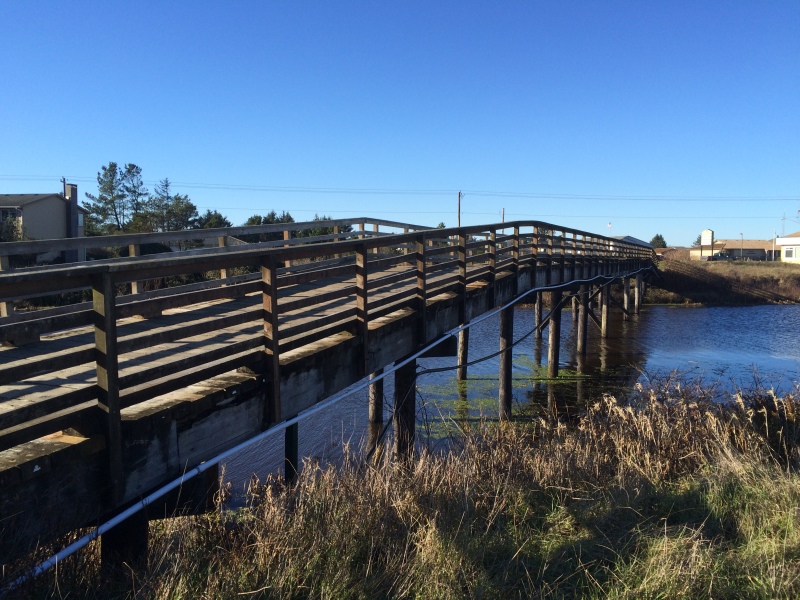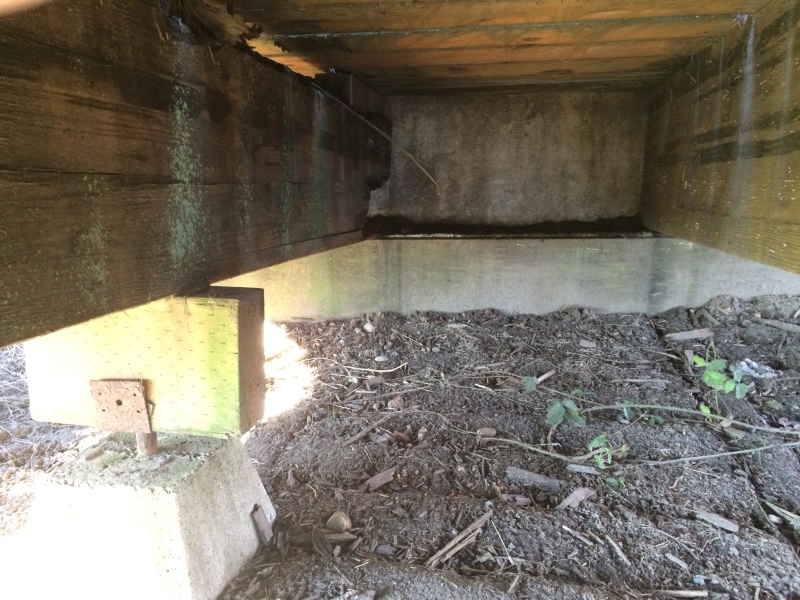medeek
Structural
- Mar 16, 2013
- 1,104
Technically I'm not suppposed to engineer this bridge. They will be replacing the main members and deck exactly as they are currently constructed so as to avoid having to bring it up to code:

My responsibility on the project is to simply document the process, draw an as built of the bridge and provide a scope of work (what members are being replaced etc...) The pilings were inspected and approved by some state agency and were deemed acceptable so those will remain.
In the process of replacing the main members the owner would like to do some minor upgrades:
1.) Provide strapping to secure PT glulam beams to pier system directly below.
2.) Provide strapping between abutting PT glulam beams for continuity and so beams have less chance of "walking" off of their bearing points. This pedestrian bridge services the golf course as well as pedestrian traffic so vibration from vehicles (albeit small) is something to consider.
3.) Provide some form of anchorage between the abutments (concrete) and the end terminal beams. Currently they are just bearing on a concrete ledger without any securing mechanism, see image below:

A confused student is a good student.
Nathaniel P. Wilkerson, PE

My responsibility on the project is to simply document the process, draw an as built of the bridge and provide a scope of work (what members are being replaced etc...) The pilings were inspected and approved by some state agency and were deemed acceptable so those will remain.
In the process of replacing the main members the owner would like to do some minor upgrades:
1.) Provide strapping to secure PT glulam beams to pier system directly below.
2.) Provide strapping between abutting PT glulam beams for continuity and so beams have less chance of "walking" off of their bearing points. This pedestrian bridge services the golf course as well as pedestrian traffic so vibration from vehicles (albeit small) is something to consider.
3.) Provide some form of anchorage between the abutments (concrete) and the end terminal beams. Currently they are just bearing on a concrete ledger without any securing mechanism, see image below:

A confused student is a good student.
Nathaniel P. Wilkerson, PE
